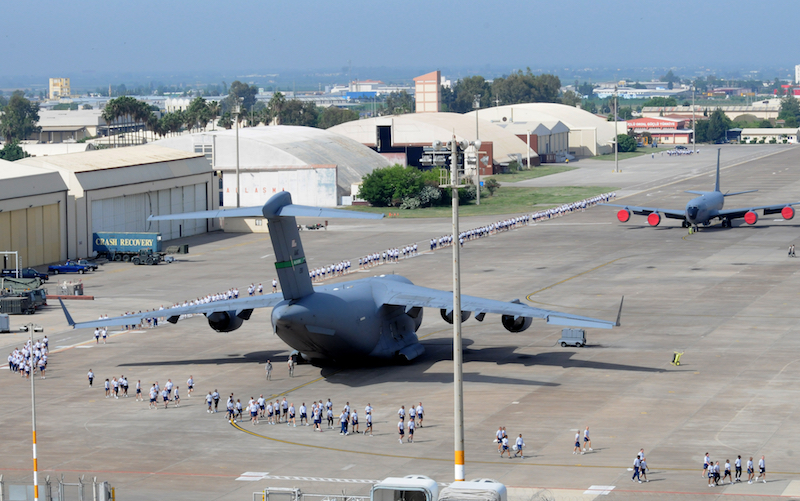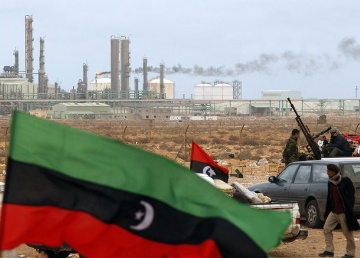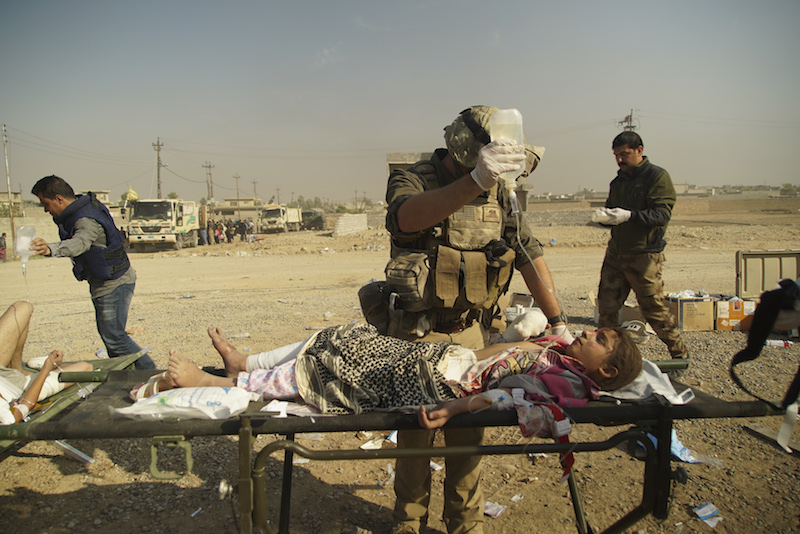Over the past year, Turkey has been the site of turbulent political change and chaos, having experienced a failed coup d’état, a wave of terrorist attacks, and a referendum which granted significant powers to President currently Recep Tayyip Erdogan. Turkey has also seen significant change in its foreign relations, particularly its relationship with the United States. Historically, the two countries have been close allies, with Turkey allying itself with the US in order to counter Soviet aggression during the Cold War. After the end of the Cold War, this alliance continued with Turkey supporting the US in the Gulf War. However, relations between the two countries started to weaken during the US invasion of Iraq in 2003, and has recently worsened due to diverging policies on Syria.
Since 2016, the US has been providing support to the Syrian Democratic Forces (SDF), a dominantly Kurdish militia, in order to counter ISIS. Turkey, however, opposes the SDF due to its cooperation with Kurdish insurgent groups fighting in Southeast Turkey. Consequently, this has led to an upsurge in anti-American sentiments in the country. After the failed coup d’état, both the Turkish government and the general public accused the US of orchestrating it. Then, in December 2016, President Erdogan accused the US of supporting ISIS. More recently, anti-Americanism has set its focus on Incirlik Air Base, a military base that has hosted the US Air Force since the start of the Cold War, and remains a crucial location for fighter jets conducting airstrikes against ISIS. Mainstream media outlets in Turkey are now demanding the eviction of American troops and last year, the government threatened to close the base.
The loss of Incirlik would be a strategic blow to the US, which relies extensively on the base in its fight against ISIS. Incirlik provides roughly one-third of all refueling and one-third of air support to US fighter jets operating against ISIS. However, growing opposition to Incirlik from the Turkish population and government may, oddly enough, provide an opportunity for the US to address one of the greatest security threats in Turkey: the presence of nuclear weapons.
Since 1961, the US has stationed nuclear weapons at Incirlik as part of NATO’s nuclear sharing agreement in order to counter the threat of Soviet aggression. However, after the fall of the Soviet Union, many of the weapons remained, with approximately 90 B61 nuclear weapons still present at the base. Some have argued that the stationed nuclear weapons still have strategic value for Euro-Atlantic states should a standoff occur between the Euro-Atlantic and Russia. The implicit argument is that by having these weapons, Russia would never attack Turkey since doing so would result in a retaliatory strike from Incirlik before a Russian nuclear weapon even reached Turkish airspace. This argument, however, runs under the assumption that the nuclear weapons in Incirlik are readily deployable. Currently, there are no nuclear bombers permanently stationed at the base, thus requiring the movement of bombers from another base — a deployment which is estimated to take months, thus making deterrence ineffective.
Yet, nuclear weapons have continued to maintain their presence as they have historically perceived to be of strategic value to Turkey. Until the failed coup d’état, the Turkish government had been quietly supportive (PDF) of the presence of the US and its nuclear weapons at Incirlik. The weapons provided a deterrent against regional powers which Turkey historically perceived to be a threat, such as Iran and Syria. However, it could be argued that recent events and changes in Turkey have diminished the strategic importance of these weapons as Turkey is increasingly engaging in rapprochement with regional actors it once fought against, such as Iran and Russia.
While countering Iran may align with the US’ strategic interests, the risks of hosting nuclear weapons in Incirlik far outweigh the benefits. Incirlik is only 100 km away from Syria, consequently leaving it vulnerable to attack from rebels and jihadists. Those who operate Incirlik recognize the threat of terrorism to the base, but claim that sufficient precautions have been taken to ensure the safety of the nuclear weapons. However, similar claims were made for the Kleine Brogel Air Base in Belgium which also hosts nuclear weapons, until a handful of unarmed anti-nuclear activists successfully entered the base and were able to access the nuclear bunkers.
Political instability and growing anti-Americanism in Turkey also pose a threat to the base. Popular discontent against the US could lead to a scenario reminiscent of the 1979 Iran hostage crisis, when anti-American Turks surrounded the base and claimed the nuclear weapons. Consequently, with the decreased strategic value of stationing nuclear weapons at Incirlik and threat of these weapons being seized, the US should move the weapons out of the base. Given the growth of anti-Americanism and subsequent changes in Turkish policies, a reduced US presence at Incirlik would be welcomed.
Furthermore, the US could also capitalize on this change in policy in order to enhance its own security. While there is no estimate on the number of personnel involved in the operation of the B61 bombs, the number of personnel for a U.S. Munitions Support Squadron (MUNSS) “responsible for receipt, storage, maintenance, and control of United States (US) nuclear weapons in support of the North Atlantic Treaty Organization (NATO)” alone, is approximately 125-150 people. With four MUNSS’ in Turkey, the United States could reduce its personnel in the country by at least 500 should it choose to remove its nuclear weapons — a figure that does not include personnel involved in other aspects of the B61s, such as the Weapons Storage and Security System. With 2,234 US troops in Turkey, this reduction would be substantial and could quell much of the anti-American sentiment in the country, thus allowing the US to keep the base open for operations against ISIS while simultaneously eliminating the nuclear threat in Turkey.
Photo: 39 ABW joins Turkish air force for FOD walk (2012), by Senior Airman Marissa Tucker via Incirlik Air Base/US Air Force. Listed under Public Domain.
Disclaimer: Any views or opinions expressed in articles are solely those of the authors and do not necessarily represent the views of the NATO Association of Canada.




